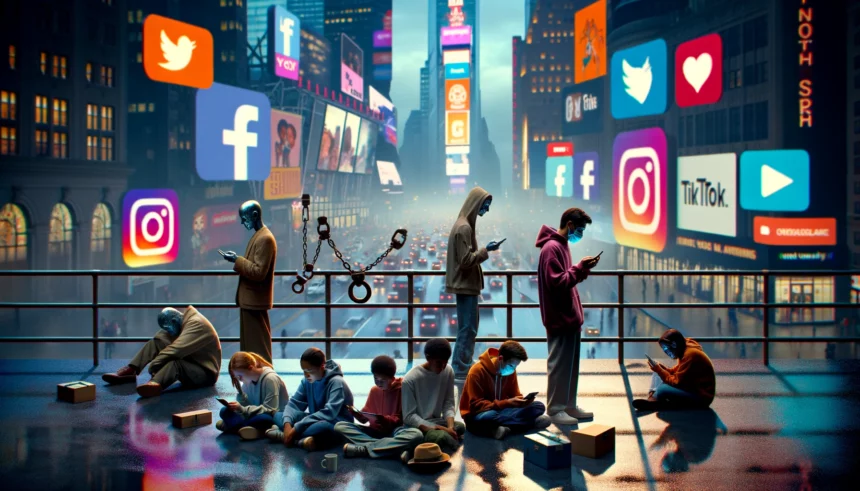New York City (NYC) has filed a lawsuit against leading social media platforms, including Facebook, Instagram, TikTok, YouTube, and Snapchat, accusing them of contributing to a youth mental health crisis. The city alleges that these tech giants have purposefully designed their applications to addict children to social media, engaging in practices that amount to public nuisance and gross negligence.
The lawsuit highlights the impact on the nation’s largest school district, which serves approximately one million students. It outlines the extensive measures the district has had to adopt, including addressing classroom disruptions, providing therapy for anxiety and despair, and developing curricula on social media dangers and internet safety.
Mayor Eric Adams’ office has pointed out that the city spends over $100 million annually on child mental health services and programs, directly attributing the crisis to the influence of social media.
Filed in the California Superior Court’s Los Angeles County branch, due to the firms’ local ties, the lawsuit accuses Meta, Snap, ByteDance, and Google (Alphabet’s parent company) of intentionally targeting young users and keeping them engaged with minimal parental oversight.
Despite acknowledging the benefits of social media in fostering societal and familial connections, Deputy Mayor for Health and Human Services Anne Williams-Isom emphasized the platforms’ potential for negative mental health implications for children.
In response, the implicated tech companies defended their commitment to user safety. Google’s spokesperson José Castañeda refuted the lawsuit’s claims, highlighting efforts to collaborate with experts in youth, mental health, and parenting to develop safety-focused policies and regulations.
TikTok cited its industry-leading measures to support children’s well-being, including age restrictions, parental controls, and a time limit for users under 18. Meta underscored its investment in tools and features to ensure safe online experiences for teenagers, while Snap emphasized its unique design that prioritizes active engagement over passive scrolling.
The lawsuit marks a significant action by a major city to hold tech companies accountable for the alleged detrimental effects of their platforms on youth mental health, setting the stage for a critical examination of social media’s role in society.
















